
THE MALAYSIA THAT COULD BE — by Datuk Seri Kalimullah Hassan - a veteran journalist who delivered this speech at the UTAR Convocation
August 21, 2010
It is a great honor for me to be here today and I want to start by
congratulating you and your families on your success.
Although I did not attend university — for a variety of reasons, chief being
that we were not rich and that I was not smart enough to be given a
scholarship — I have, every moment in my life, acknowledged the value of a
college or university education. There’s always that tinge of regret in me
when I hear my friends speak of the fun they had in campus, the pranks they
played, the girlfriends they met, the midnight oil they burnt during exams
and the pride with which they took to the stage to receive their scrolls and
enter the new phase in their lives.
Today, it is your turn to feel the pride of receiving your scrolls after
having worked so hard. Today is a great day for you. You are young; you are
raring to go; you want to make your name; you have dreams; you have hopes;
you have your whole life ahead of you.
Many of us here on stage are in our twilight years. We have lived our lives
as best as we could and made our mistakes along the way. Some learn from
their mistakes; some don’t. It is those who learn from their mistakes who
make it in life. For those of us in this twilight stage of life, time is a
luxury we don’t have. But you, graduating students of UTAR today, you are on
the fringes of a new beginning with all the time ahead of you.
The only thing that remains is for you to set your goals; work hard; believe
in yourself; persevere; and God willing, one day, in the future, you will be
able to say — I am proud of what I have achieved and I am proud of what I
am.
Graduating students, respected audience, and friends:
As you prepare to go out into the world, I would like you to share one
thought with you. In my life, the one thing I have always been proud of is
my belief that this is a great country which could be greater; and that I am
proud to be a Malaysian — first and last.
Today, the theme of my message to you is that only you can decide how you
are going to live and that it is you who will decide what your Malaysia,
your future generations, and your world will be long after we are gone. At a
time when Malaysia is seeing daily debates on race and religion, you have a
heavy burden to bear; you, the young generation, will decide which direction
Malaysia takes and I hope today, I can share a little of what our generation
went through so you can learn from our mistakes and build on the right
things we did.
While we learn from our own mistakes, we should also learn from history.
Unfortunately, human beings are prone to forgetting history. Allow me to
talk about one personality who has shaped many lives and changed the course
of at least his country, the United States of America. I want to talk about
the American civil rights leader Dr Martin Luther King Jr, a great man, who
like us, had a dream. I want to talk about him because his thoughts have
bearing on us as well.
Dr King died for his dreams but the whole world can continue to learn from
him; especially us, a country that is multi-racial, multi-cultural and
multi-religious; a country our founding fathers had hoped would symbolize
the dream that they had; that was no different a dream from the dream Martin
Luther King Jr had. I quote Dr King in one of his most famous speeches,
where he spoke about his American dream. He said:
“I look forward confidently to the day when all who work for a living will
be one with no thought to their separateness as Negroes, Jews, Italians or
any other distinctions.This will be the day when we bring into full realization the American dream." -- a dream yet unfulfilled;
“A dream of equality of opportunity, of privilege and property widely
distributed; a dream of a land where men will not take necessities from the
many to give luxuries to the few;
“A dream of a land where men will not argue that the colour of a man’s skin
determines the content of his character;
"A dream of a nation where all our gifts and resources are held not for
ourselves alone, but as instruments of service for the rest of humanity;
“The dream of a country where every man will respect the dignity and worth
of the human personality.”
Today, more than 40 years after that speech, a black man is the President of
the United States of America; a black man, it is proudly said, lives in the
White House. Today, to a large extent, Martin Luther King’s dreams have come
true in his country. Remember, even in the 1960s, after Malaysia had become
independent, after the United States had been independent for almost 200
years, blacks and colored people were not allowed to eat at restaurants
which were reserved only for white people; they could not drink from the
same tap as the white man; they could not ride on the same bus as the white
man; and in many parts of rural America, the Ku Klux Klan regularly lynched
and killed blacks for sport. Therefore, America took major strides in civil
liberties in the last four decades that countries throughout the world can
learn from.
As I say this, today, I stand here and ask you — have the dreams of our
founding fathers been fulfilled?
Some people say that it took the United States more than 200 years before
the true American dream could be realized. They say we are a young nation,
only 53 years old, and we should be proud of what we have achieved. Yes, we
have achieved a lot. Yes, we never had the kind of discrimination and civil
rights abuse as the United States had for more than 100 years. But that
doesn’t mean we too should wait 200 years to realize the dream our founding
fathers or we have.
I believe that if our founding fathers were looking over us right now, they
would be proud to see the physical achievements of our country; but their
hearts would break to see the path we have taken in addressing each other
as fellow Malaysians. If they looked at the news; at what right-wing
charlatans and extremist groups are doing and saying; at the daily racial
baiting and taunting, they would weep.
And, no, we cannot wait for 200 years like the United States of America to
expect change because today, the world moves at too fast a pace and we are
already lagging. If we don’t change, then we will forever be known as the
“the Malaysia that could have been.”
Once sleeping giants like China and India can transform themselves from two
extreme ends of ideology — one the world’s largest communist country, the
other, the world’s largest democracy — to seize the opportunities, and from
slumbering giants, catapult themselves into the forefront of the world
economy; countries once deemed backward like Indonesia and Vietnam are
charging ahead; all around us we see that those who dare to take the brave
step forward, move forward. So, no, we cannot afford to wait 200 years to
realize our dreams of the “Malaysia that should be.”
Graduating Students, As you go out into the world today, your Malaysia is different from theMalaysia I grew up in. My Malaysia was the Promised Land; it was a Malaysia
where our differences mattered so much less than our similarities and our
shared dreams; it was a Malaysia where we ate at each other’s homes, where
we played games together, where we grew up together and where we have
remained friends even in the winter years of our life.
Your Malaysia is a different Malaysia. It is a Malaysia which,
unfortunately, is today again struggling to find an identity, more than half
a century after independence. It is a Malaysia where every day we find our
differences accentuated. It is a Malaysia where it seems the spirit of
family, of togetherness, of oneness is a spirit which only the twilight
generation reminisces about.
My Malaysia was a Malaysia where we dreamed of venturing out, seeking
opportunities and building our homes and prospering our country. Today, my
Malaysia is a small part of a global village where opportunities abound in
the world around us. In your new world, you are an international citizen,
shackled only by the limits you set yourself.
In the year 2007 and 2008, almost half a million Malaysians left this
country to work abroad. That, respected audience, is almost 2 per cent of
our population — and probably accounts for more than five per cent of
working professional and skilled Malaysians — a disturbingly large number
for a developing country like ours.
A study by the Institute of Gerontology, University of Kuala Lumpur, showed
that we are an aging country. The number of older non-working persons in
Malaysia doubled from 1980 to the year 2000 from 700,000 people to almost
1.4 million; in 2020, it will be 3.4 million people. Against this backdrop,
half a million skilled Malaysians of working age leaving the country is
unsettling. Will we end up being a country of old people?
We can see the phenomena in many small towns and villages in rural Malaysia
where the young have left for opportunities in the cities and abroad and
their kampongs and home towns become dwellings of old folk. They build a new
life and return perhaps for the annual festive holiday or balik kampong, and
don’t look back again. Magnify that at the level of our country — if our
young and skilled continue to leave for opportunities abroad, is it possible
that we, too, could one day become a country for old men?
There must be reasons why Malaysians want to leave such a wonderful country.
Could it just be diminishing opportunities here and better opportunities
elsewhere? Unhappiness? Politics? Marriage? Discrimination? Or what?
It cannot be an easy decision to leave your country because we are, I am
sure, all familiar with the saying: Hujan batu di negeri sendiri lebih baik
daripada hujan emas di negeri orang.
How many times that I have been abroad on work or leisure for extended
periods and I remember how lonely it feels after just a few weeks. That
feeling of emptiness is real. And there have been times when I have been to
certain countries ravaged by poverty or infighting and war; then, the only
thing I want to do is literally kiss the ground the moment I land at KLIA.
Why then are people leaving?
There was a time when people from other countries wanted to come to Malaysia
because it was seen as a land of opportunity and a land of promise; a land
of honey and sunshine; a land where dreams could come true.
That, ladies and gentlemen, was my Malaysia, the Malaysia I grew up in.
It is still a great country, and we owe that to our founding fathers but it
is a different Malaysia today; a sad Malaysia. In that respect, how could
anyone fault you if you say our generation is to be blamed for giving you
the Malaysia you inherit?
But please do not mistake what I am saying. I believe that Malaysia has very
good people and God’s given treasures; we can still be a great country- but
only if we work towards making it great.
Let me now talk about my Malaysia. I wonder how many of you are fans of Lat,
the cartoonist? Many of my generation grew up on Lat’s cartoons. He is an extraordinary
human being who epitomizes the true Malaysian spirit which, I believe, our
forefathers envisaged. In Lat’s cartoons we would always see the portrayal
of Malaysian life where all Malaysians worked together, played together and
lived together in harmony. But there was one cartoon by Lat two years ago
which showed all his multi-racial characters huddled under an umbrella made
out of the Malaysian flag; they were taking shelter from politicians,
right-wing activists and chauvinists who spewed racial invective.
To me, it was a sad cartoon. It was a tragedy of the new Malaysia that we
live in today. Two years after that cartoon, not much has changed. In fact,
if anything, it has become worse.
Yes, it is true that it was not all glorious sunshine and camaraderie in our
country since 1957; and yes, it’s true that we did live through the madness
of May 13, 1969. But save for that stint of insanity in our history, we have
largely had good years. I want to remember the good things we had, the good friends we had and my story is not different from the story of most of us who grew up before and
immediately after Independence. The childhood I had in my hometown Kroh
(Pengkalan Hulu now) on the border with Thailand, and later in Penang, was
similar to that of Lat in Perak.
Today, most of our childhood friends still keep in touch and though we do
not meet regularly, we are still friends. You see that in Lat’s cartoons
over the last three decades as he rolls out his own life story.
Where did we take that wrong turn in nationhood that we ended seeking refuge
under the flag? When did racial baiting and taunting become an almost
everyday affair?
My Dear and Respected Audience, I don’t think anyone of us can say when we started taking the wrong fork in the road to come to where we are today. Perhaps, the undue obsession with politics over the last decade, perhaps greater awareness of a generation
unscarred by the hardships of a post-independence era, perhaps greater and
more open access to information, and perhaps more awareness of civil rights
and liberties has contributed to accentuating differences. The question is -
can we do anything about it? I believe we can.
As in everything, character is normally shaped in our formative years — at
home, in our neighborhoods and in schools.
In the book Character-Building Thought Power the question is asked whether
we have the power to determine at all times what types of habits shall take
form in our lives. In other words, is habit-forming, character-building, a
matter of mere chance, or do we have it within our own control? The answer
is yes, we have, entirely and absolutely. Look at the case of the United
States and Martin Luther King Junior. Would anyone in America have thought
in 1960 that one day, a black man would be President of that great country
and those minorities — blacks, Indians, Hispanics, Chinese and Jews — would
occupy senior positions in Government? If there were any, it would have been
the most optimistic of `human beings who would have envisioned that.
The book states that there is a simple, natural, and thoroughly scientific
method to build character - a method whereby old, undesirable, earth-binding
habits can be broken, and new, desirable, heaven-lifting habits can be
acquired — a method whereby life can be changed, in part or in its totality,
provided one has sufficiently will.
The key to it is thought. Everything you do, every conscious act, is
preceded by a thought. Your dominating thoughts determine your dominating
actions. Repeated actions crystallize into habit; and the aggregate of your
habits is your character. In simpler language, practice makes perfect. If
you practice negative acts, for example lying, stealing, cheating, it
becomes natural to lie, cheat and steal. But if in your mind, you believe
that lying, cheating and stealing are bad, are wrong, and you tend to do the
opposite as much as you can, you will become a truthful, honest, do-good
person.
It is a simple psychological law that any type of thought, if entertained
for a sufficient length of time, will, by and by, reach the motor tracks of
the brain, and finally burst forth into action. Murder can be and many times
is committed in this way, the same as all undesirable things are done. On
the other hand, the greatest powers are grown, the most God-like
characteristics are engendered, and the most heroic acts are performed in
the same way.
The thing clearly to understand is this: That the thought is always parent
to the act. In other words, you are what you think.
Here let us refer to that law of the mind which says that whenever one does
a certain thing in a certain way it is easier to do the same thing in the
same way the next time, and still easier the next, and the next, and the
next, until in time it comes to pass that no effort is required, or no
effort worth speaking of; but on the contrary, to do the opposite would
require the effort. It’s like playing tennis or badminton or football. If
you learn to smash correctly, to lob properly, and do it again and again,
you will never lose that skill. But if you don’t set your mind to it, and
don’t practice, you will never get it right and always leave it to chance,
or to a fluke shot.
Thus a simple effort to control one’s thoughts, even if at first failure is
the result, and even if for a time failure seems to be about the only
result, will in time, sooner or later, bring one to the point of easy, full,
and complete control.
From the individual to the society; every earnest effort adds an increment
of power that will eventually accomplish society’s objective.
Now, allow me to go back to that path we took in our road to nationhood that
has led us to where we are today. If we subscribe to the belief that thought leads to character building, then how we live with each other in a multi-racial, multi-religious society begins with us, at home, with our children, in the neighborhood we live and
in the schools our children go to.
My wife and I grew up at a time when most parents strived to send their
children to English medium schools. Although I come from a small rural town
my late parents sent my two elder brothers to an English medium school in
Baling, Kedah, more than 10 miles away. Today, that distance does not seem
very much. But think back 1960 in communist infested jungles around Kroh,
narrow winding roads, irregular bus service, not enough trained teachers and
you will see what sacrifices our parents made to ensure we received a good
and balanced education.
The character of schools was then different. The students were from all
races and denominations; and let’s face it; children are the most innocent
and least prejudiced beings in the world. They grow up accepting each other,
no matter what their color, no matter what their religion. Those formative
years formed our thoughts and our character and thankfully, most of us
carried that on into our adulthood.
Our elders, too, were not as prejudiced, living with each other in mixed
neighborhoods, accepting each other’s differences, each other’s cultures and
each other’s different beliefs. Sure, it was not all hunky dory but they
were, although poorer, a happier society.
But despite that, May 13 happened and it shattered the myth of one happy
country and we tried to rebuild ourselves. We had campaigns in earnest such
as the “muhibbah” campaign in schools; we had the Rukun Negara; we had Rukun
Tetangga; our leaders strived to salvage our shattered dreams and we did
recover, largely because it was a societal effort. But there was terrible
cost to pay and many people migrated during that period, most, never to come
back again.
Today, again, we seem to be taking the wrong path again – churches being
burned, mosques and temples desecrated; right wing groups touting race over
nationality, threatening those who don’t think like them, discriminating and
differentiating…..
Today, as a parent of four grown-up and growing children, I want to state
that despite trying to put all our prejudices aside, my wife and I found
that there were occasions when we were shocked at the things that our
children picked up in school. They would utter things in innocence which
displayed prejudices we did not impart upon them. It was after a lot of soul
searching that we concluded that in our schools today, children were
separated because Chinese parents preferred to send their children to
Chinese schools, where they felt the education system was better, and,
generally, Malay and Indian kids went to national-type schools. That has
resulted in unintended consequences where bumiputras are the vast majority
in national type schools and the Chinese, the majority in Chinese-type
schools. In each environment, those outnumbered felt more comfortable within
their own race group, their own silos, and some, across the spectrum,
displayed the prejudices that their own parents had. There is something
seriously lacking in our education system today; but unfortunately, change
has not come despite all the negative fallouts where from young, our
children are deprived of growing up in a true Malaysian environment.
Since my wife and I knew that we could not change the system, we asked what
could we do?
I can tell you that it was not easy. We exposed the children to our friends,
so much so that many of our old friends and their children, of different
racial and religious backgrounds, are also today their friends.
We encouraged them to learn about other cultures and other religions as much
as we encouraged them to learn about their own religion. We have visited
temples and churches in places we have gone to and we did not discourage
them from sleeping over at the houses of their friends and vice-versa, no
matter what religion, culture or race.
At times, we felt we were fighting a losing battle because growing up in the
impersonal city is so different from the kampong or small towns where
camaraderie is easier, where prejudices are less. But today, that the kids
are adults or near adulthood, we are grateful that we persevered because
they have grown up shedding prejudices and accepting people as people,
rather than as Eurasians, Chinese, Malays or Indians.
It has also helped that there are many inter-racial marriages within our
immediate and extended families and weddings and family get-togethers bring
together our Chinese, Kadazan, Indian, Pathan, Iban and Malay relatives.
But it has certainly not been a smooth ride because societal pressures have
often threatened to derail our own dream of a one Malaysia.
When the kids were overseas — the two elder ones are back after graduating —
my wife and I used to take them and their friends out for dinner. We enjoyed
taking them out as well as listening to them talk, and marveled at their
innocence, at their inability to grasp why people should look at each other
and evaluate each other by race, religion or colour. They are idealistic but
I wish that more of us shared this idealism.
Listening to the children and their friends, I often felt a great sadness
because I knew that one day soon enough, they would finish their education,
come home to Malaysia, and if things did not change, they, too, would
eventually get a little influenced, become a little prejudiced and lose a
little of their innocence.
They would find it a little disconcerting to be referred to by their race
because overseas, they just find comfort in hanging out together; because in
their mind, they are just Malaysians in a foreign land. They are not black.
They are not white, yellow or brown. They are just Malaysians.
Maybe I have become too cynical but I often wonder what people would say if
I were to ask them “what race are you?”
Take my nephew, Johan, for example. My brother’s wife is Chinese. Johan
looks every bit a Chinese. What race is he? My wife is of Malay, Gujarati
and Sinhalese descent. What race are our children? You will be amazed to
know that because of this inability to determine what race we are, my
children are deemed to come from different races, as stated on their MyKad.
My eldest is listed as a Pakistani; my second and youngest as Malays; and my
third child as Indian. I refused to argue with the National Registration
Department because as far as I am concerned, my kids are all Malaysians —
first, second, third or last.
I can give you other examples. My friend Mervin is a Malayalee who grew up
in Kuala Lumpur and Kuantan. He married a Kadazan from Tamparuli in Sabah.
They are Catholics and they now live in Hong Kong, hoping to come back in a
few years when he retires.
Their daughter, Natasha, married Reza, a Shia Muslim, originally from Iran,
born in Pakistan and who moved to London. Both are working in Singapore now.
What race is Natasha and what race would their children be?
I could talk about Ayub, my Indian Muslim buddy, and Alya Chew, his Chinese
wife, or about my friend Tan Sri Bashir Ahmad and his Australian wife; about
my cousin Shakeel and his Canadian wife; or his brothers Atique and the late
Shamin and their Chinese wives; or my long-time friend Maniam @ Wong Joon
San s/o Alagan, a Bahai from Muar, who married his Chinese sweetheart Jenny
Tan, and who are staying in Hong Kong now.
What race are they? What colour are they? Who is the Malaysian? THEY ALL
ARE.
One Malaysia, Bangsa Malaysia, Middle Malaysia – all these are slogans,
designed, I believe, with ostensibly noble intentions. But as long as these
slogans and intentions remain on billboards lining the highway from KLIA to
Shah Alam; as long as they appear only in advertisements on television and
in the newspapers; as long as they remain merely on our lips, we will not
achieve anything.
Who among us does not want these dreams achieved? But if we want these
dreams to come true, one Malaysia must be in our hearts, not only on our
lips.
Graduating Students, respected audience
Barack Obama said people have a choice — they can either remain as
bystanders and go on with their lives and let others talk about the world
they want build or they can work towards building that world.
I have been inspired by many of Obama’s speeches. He said, of people who
want change, that:
Throughout your life, you will face many challenges in seeking change; and
there will be many periods when you will be at the crossroads, wondering
whether it is worth your while; whether you should not just narrow your
interests and get on with your own life than trying to be a crusader for the
larger good.
“But I hope you’ll remember, during those times of doubt and frustration,
that there is nothing naïve about your impulse to change the world. Because
all it takes is one act of service - one blow against injustice - to send
forth what Robert Kennedy called that ‘tiny ripple of hope’. That’s what
changes the world.”
So never give up. Never allow disappointment to stop you in your tracks.
You have to pick yourself up and go on. And if you do that, you will do
well by yourself and by your country.
Graduating students of UTAR
My generation is fading into the twilight of our sunset years. It is now up
to your generation, to transcend this challenge. And you will be doing so in
a world that is as different from ours as night is from day.
The globalised, interdependent, interconnected era we live in today means
that when you leave this hall and set forth on your journey of life, you
will do so not as Malays, Chinese, Indians, Punjabis, Ibans or Kadazans.
Perhaps not even as Malaysians. You will undertake the journey as GLOBAL
citizens, competing and collaborating across communities and across borders.
The IT revolution has placed in your hands the tools and the opportunities
to fashion this world in line with your own ideals and hopes.
The future is in your hands.
And now, having imparted those words of “wisdom”, allow me to relate an old
Indian tale.
One evening an old Cherokee told his grandson about a battle that goes on
inside people. He said: “My son, the battle is between two ‘wolves’ inside
us all. “One is Evil. It is anger, envy, jealousy, sorrow, regret, greed, arrogance,
self-pity, guilt, resentment, inferiority, lies, false pride, superiority,
and ego. “The other is Good. It is joy, peace, love, hope, serenity, humility,
kindness, benevolence, empathy, generosity, truth, compassion and faith.”
The grandson thought about it for a minute and then asked his grandfather:
“Which wolf wins?” The old Cherokee replied: “The one you feed.”
As you leave this evening, and go on to a new life and new future, just ask
yourself one question – which wolf will you feed?
Before I end my speech, let me come back to Martin Luther King’s dream.
Something else that Dr King said perhaps bears context to our Malaysia
today. He spoke about the lack of the spirit of human generosity in today’s
world and I quote:
“When we look at modern man, we have to face the fact that modern man
suffers from a kind of poverty of the spirit, which stands in glaring
contrast with a scientific and technological abundance.
“We’ve learned to fly the air as birds, we’ve learned to swim the seas as
fish, yet we haven’t learned to walk the Earth as brothers and sisters.”
So go out today and make the Malaysia that should be. It is in your hands
how you want to shape our country.
God bless and thank you.
Datuk Seri Kalimullah Hassan



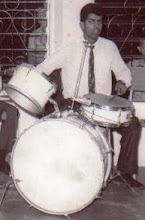

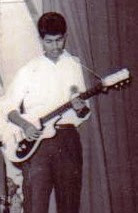


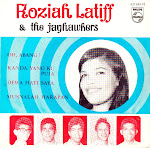



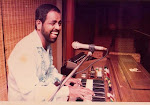

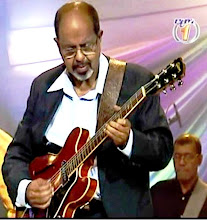


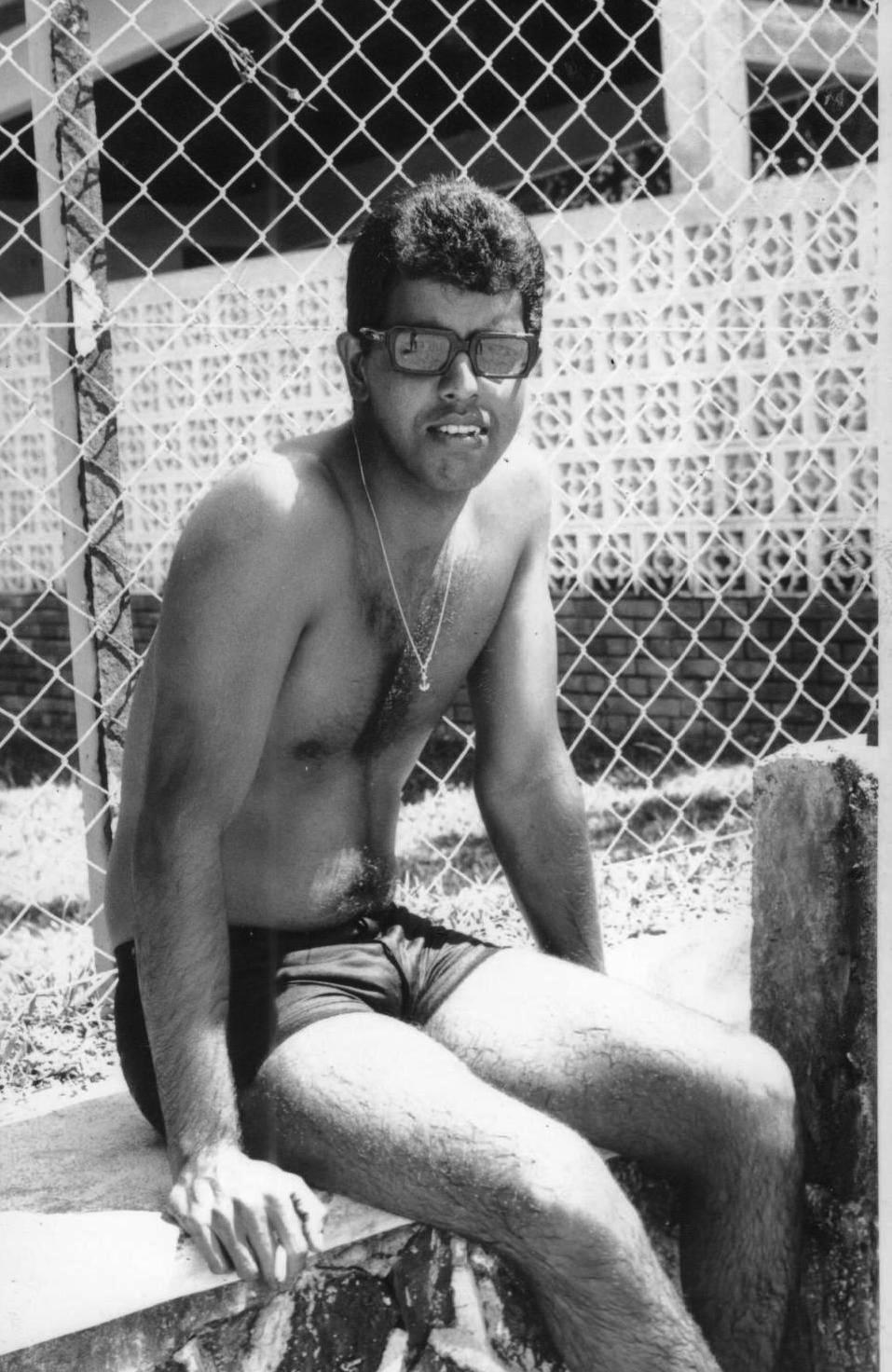
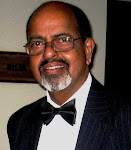


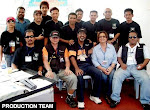
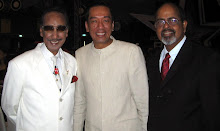

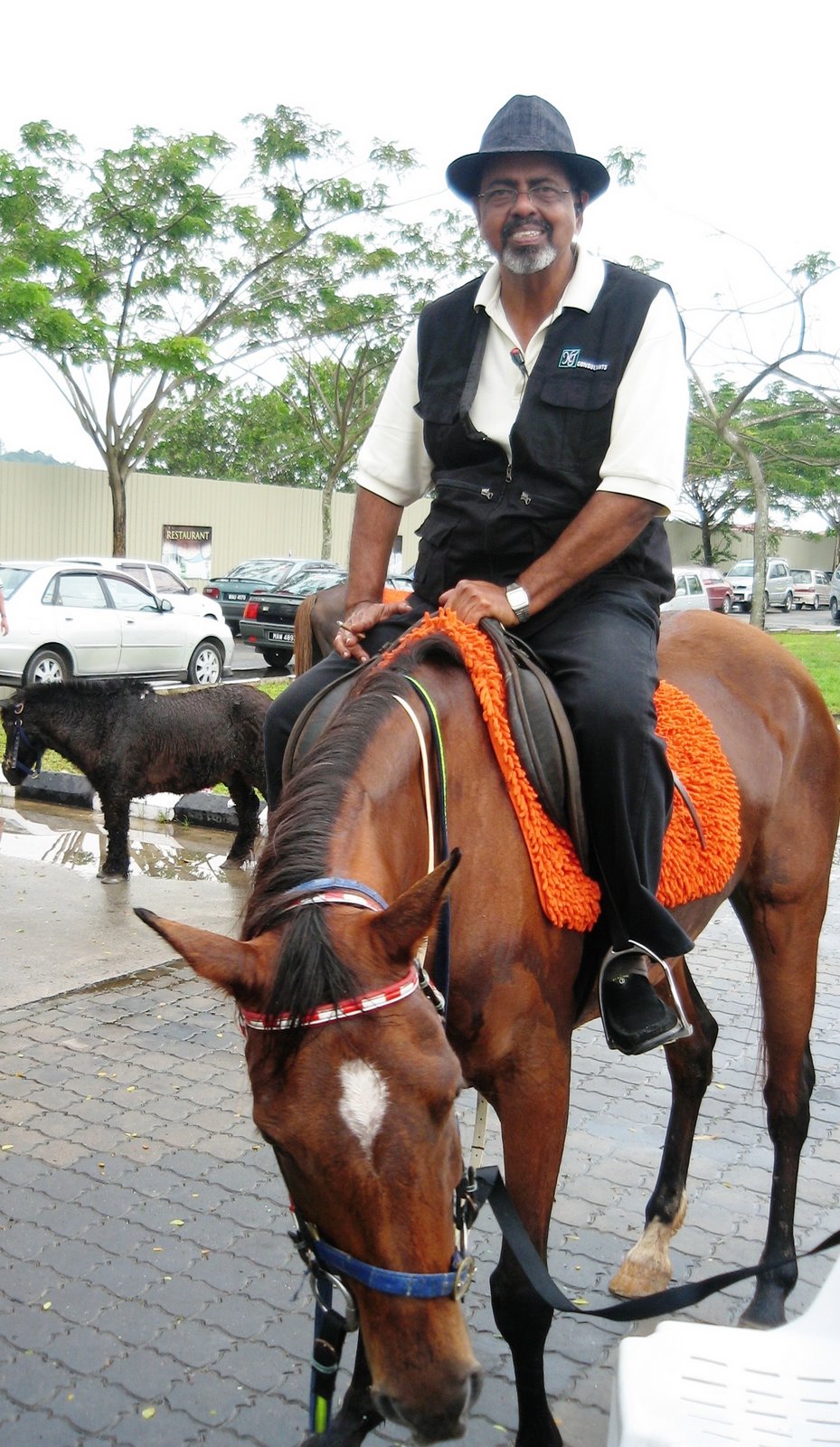







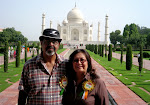



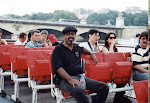

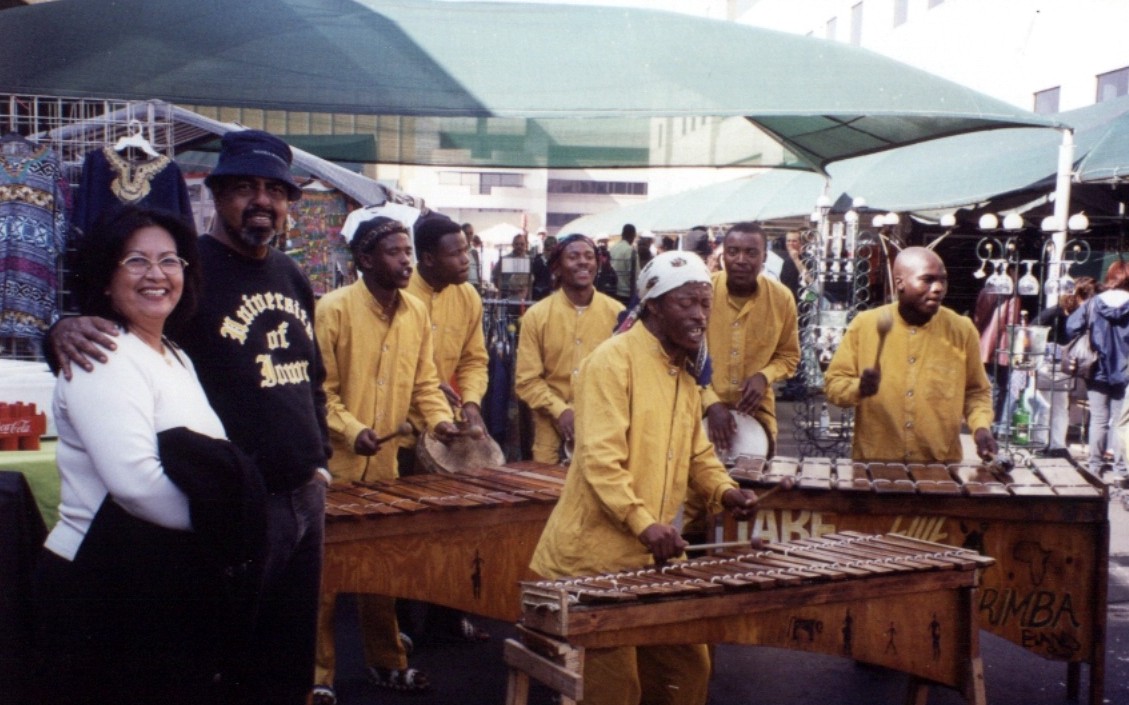

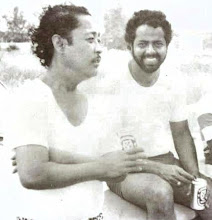
No comments:
Post a Comment